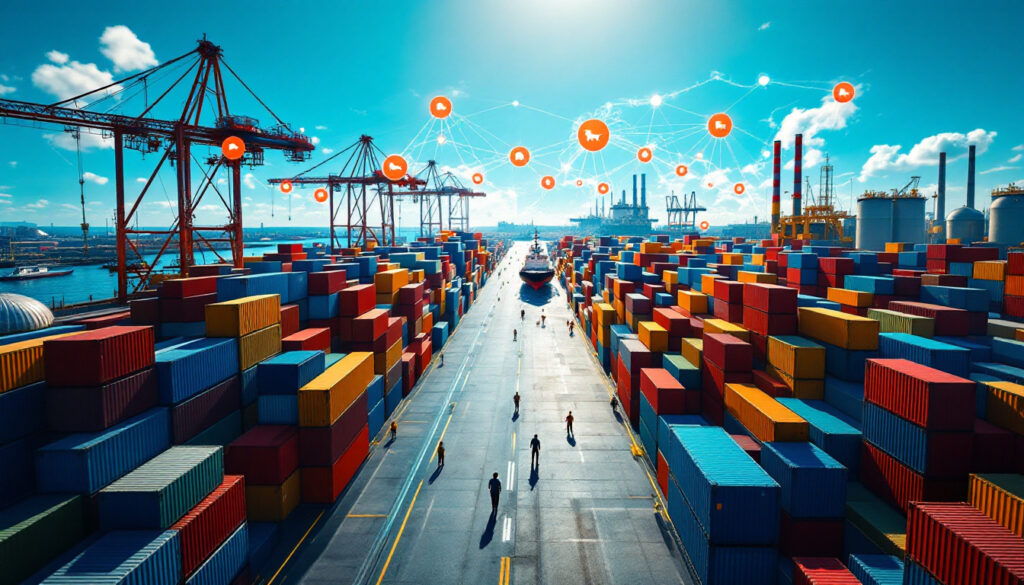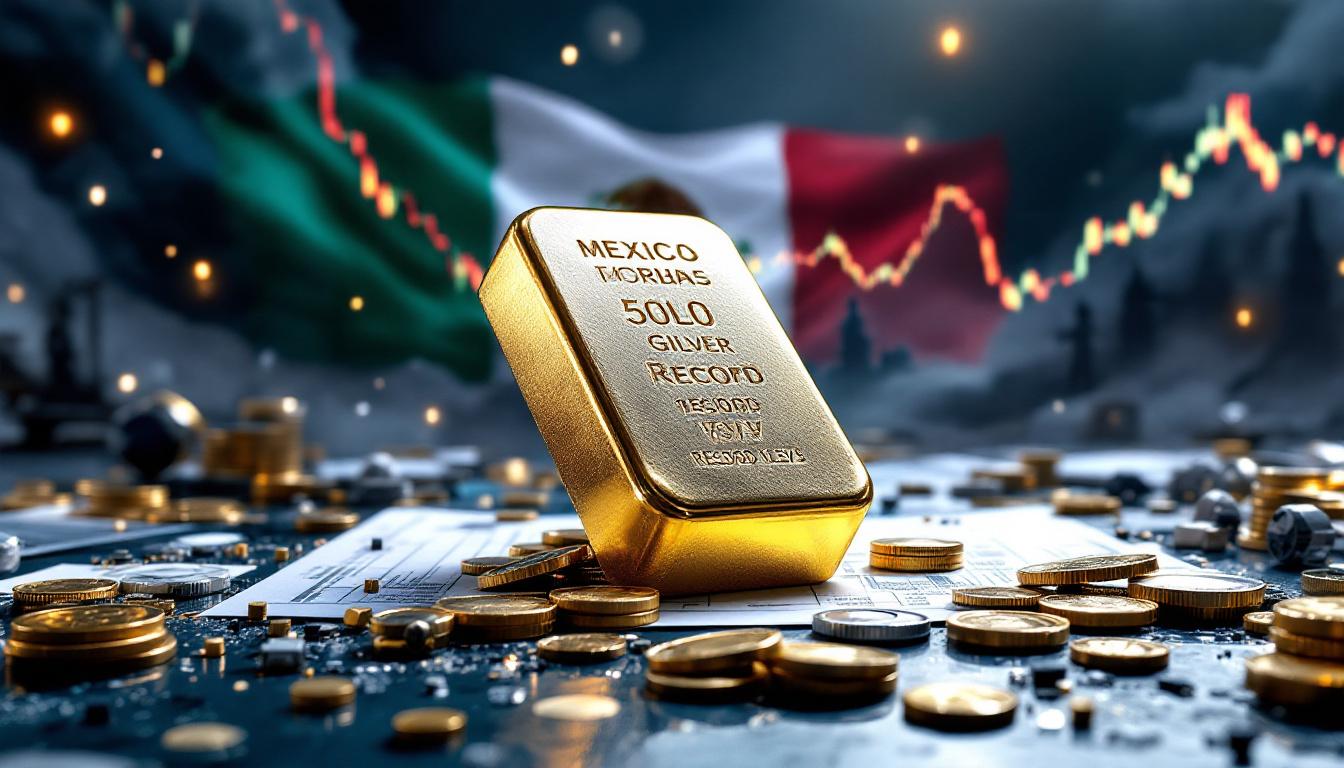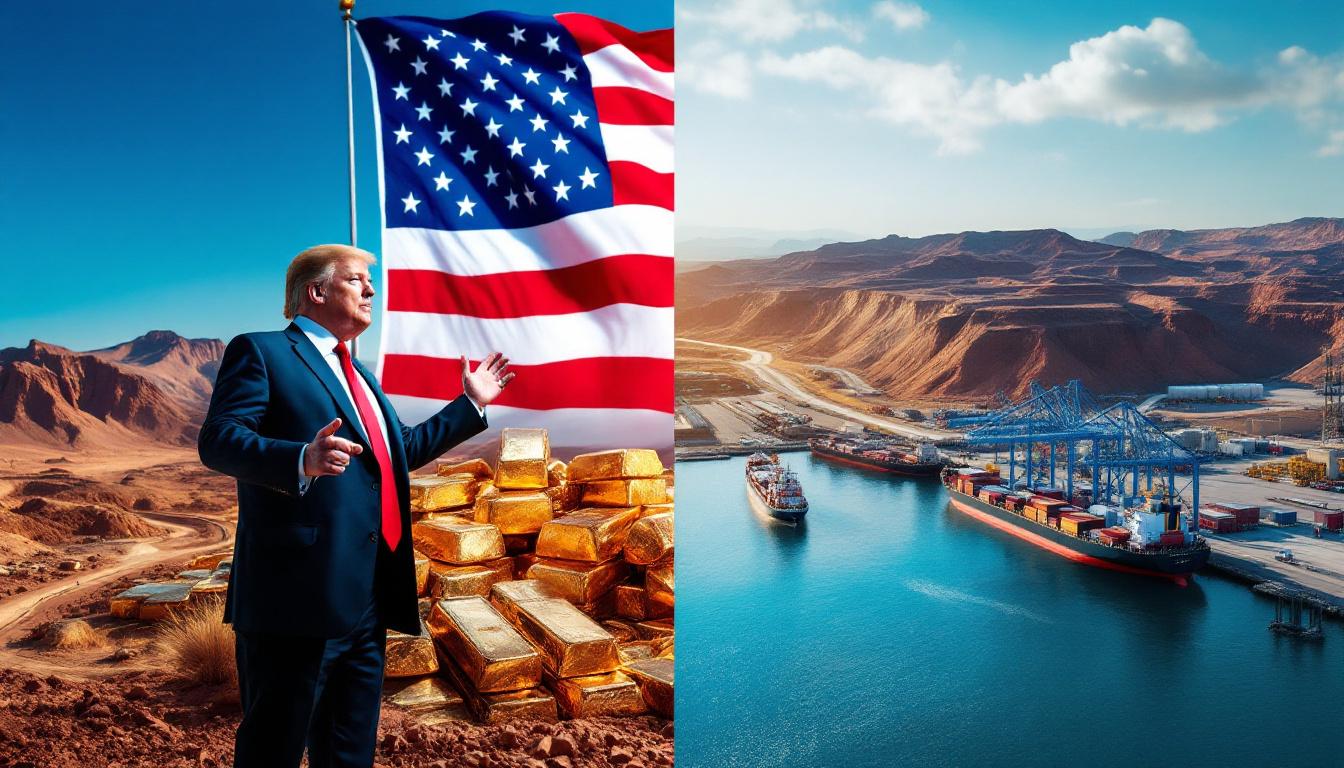## Why Has China Frozen Antimony Shipments to the EU?
China has completely halted antimony shipments to European Union countries since October 2024, marking an unprecedented disruption in the global supply chain for this critical metal. This move has intensified concerns among manufacturers.
This strategic pause represents a significant escalation in China's control over critical minerals exports, as witnessed in the critical minerals race amid resource nationalism. Notably, these china export controls on antimony shipments to eu have compelled industries to reassess their dependency on Chinese supplies.
## What Are the Key Impacts of China's Antimony Export Controls?
The immediate impact of China's export controls has been dramatic price inflation. Regulus grade II antimony prices have surged over 300% compared to their levels a year ago, creating significant cost pressures for European manufacturers.
European antimony stock levels have reached critically low volumes. Cristina Belda, a senior analyst at Argus, has characterised the situation as "approaching critical shortage territory", with some manufacturers reporting less than 60 days of inventory.
The numbers tell a stark story: China's total antimony exports in 2024 declined by 24.1% to 38,632 metric tons, representing the lowest export volume in five years. This reduction has created a substantial supply gap that alternative sources have been unable to fill.
Industry analysts suggest this strategic pause may be designed to apply pressure on Western nations over trade disputes and technology restrictions. For further insights, consider navigating the geopolitical shift in mineral markets, as experts highlight this complex interplay.
## How Did China's Export Restrictions Develop?
China’s export restrictions unfolded through a clear timeline:
– August 2024: Beijing announced plans to impose export limits on antimony and related elements, citing national security concerns. This initial announcement triggered immediate market speculation.
– September 2024: The first wave of restrictions took effect, limiting export volumes and requiring special licences. This led to a stockpiling rush among European importers.
– October 2024: Without a formal announcement, a complete halt of antimony shipments to EU countries began, creating widespread confusion.
– December 2024: China imposed an outright ban on antimony exports to the United States, further intensifying the strategic nature of these controls.
According to Reuters analysis, these measures have had significant market impact. Strikingly, the timeline underscores Beijing’s methodical pacing amid escalating tensions.
## Why Is Antimony Considered a Strategic Metal?
Antimony has emerged as a critical element in modern manufacturing and military applications. Its role in semiconductor production and flame-retardant additives renders it indispensable across various sectors.
In defence applications, antimony is crucial for munitions production, particularly in hardening lead in bullets and artillery shells. In addition, its use in solar panel manufacturing supports the green energy transition.
China's dominance in antimony production is striking – the country accounted for nearly 49.7% of the global supply in 2023. This heavy concentration creates inherent vulnerabilities for nations dependent on imports.
As minerals strategist Wei Zhang explains, "What makes antimony particularly strategic is the concentration of production." Consequently, any disruption—such as the china export controls on antimony shipments to eu—can have far-reaching consequences.
## Which Countries Are Most Affected by the Export Controls?
The Netherlands has been particularly hard-hit by the export controls. As the top EU importer of Chinese antimony in 2023, its imports have dropped drastically since the freeze.
Other significantly affected EU nations include Belgium, Italy, and Germany. Their manufacturing sectors now face severe constraints in obtaining this vital metal.
Furthermore, the United States confronts additional challenges with a complete export ban. This measure has forced U.S. manufacturers to seek alternative sources, often at considerably higher costs.
Interestingly, Brazil, Thailand, and Russia continue receiving shipments, suggesting a selective approach in these restrictions. Such selective measures accentuate the severe impact of china export controls on antimony shipments to eu.
## How Does This Differ From Previous Export Restrictions?
This freeze represents a marked departure from previous export control episodes. The five-month pause in EU exports is significantly longer than earlier restrictions, which typically lasted only weeks.
Earlier control measures often included expedited export licences for long-term customers. However, the present restrictions lack such exceptions, indicating a more comprehensive and uncompromising strategy.
Notably, these controls seem to be applied regionally rather than uniformly across all markets. Consequently, geopolitical factors appear to drive this selective enforcement.
Trade analyst Maria Fernandez observes, "What makes this round notably different is its apparent correlation with broader geopolitical tensions." This view further underscores the strategic nature of the current measures.
## What Are the Implications for Global Supply Chains?
The antimony export freeze has disrupted global supply chains extensively. Manufacturers are now facing significant price volatility, which complicates long-term planning and contract negotiations.
Unexpectedly higher spot prices and the uncertainty of future supplies have spurred companies to search for alternative non-Chinese sources. As a result, projects in Tasmania and Canada have accelerated their development timelines.
European firms, pressured by these challenges, are rethinking their sourcing strategies. In response, many are investing in innovations such as recycling technologies to reduce their reliance on imports.
Moreover, these shifts have exposed vulnerabilities; for instance, ongoing china export controls on antimony shipments to eu are prompting firms to diversify their supply chains. In addition, how trump's policies are reshaping global commodity markets provides a parallel example of policy-driven disruptions.
## FAQ: China's Antimony Export Controls
Q: Is the export freeze a violation of WTO rules?
A: While export restrictions often attract WTO scrutiny, national security exemptions grant significant leeway. China has specifically cited security concerns to justify its current measures.
Q: How much antimony does Europe produce domestically?
A: European domestic production of antimony is minimal. Most significant mines have long been closed, leaving the continent heavily reliant on imports, particularly from China.
Q: Could recycling effectively compensate for the current supply shortage?
A: Although recycling technologies for antimony exist, recovery rates are presently below 20% of total consumption. Considerable advancements and infrastructure investments would be required to substantially offset import dependency.
## How Can Industries Adapt to Antimony Supply Disruptions?
Companies facing supply challenges are exploring multiple adaptation strategies. These include searching for alternative suppliers and accelerating recycling initiatives to mitigate future shortages.
For example, Australia’s Mandalay Resources and Turkey’s Özdemir Mining have observed increased enquiries from European buyers seeking non-Chinese sources. In addition, businesses are increasingly undertaking comprehensive risk assessments.
Developing efficient recycling technologies presents a medium-term solution. Advanced pyrometallurgical processes can recover significant proportions of antimony from industrial waste streams.
Research into substitute materials for antimony-dependent applications is also underway. However, these alternatives may involve some performance trade-offs. Strategic stockpiling is emerging as another viable response.
Notably, initiatives such as India’s national critical mineral mission serve as models of government-backed strategic resource management.
– alternative supplier search
– recycling innovations
– substitute material research
– building strategic reserves
## What Does This Mean for the Future of Critical Minerals Trade?
The antimony export freeze signals the beginning of a new era in critical minerals geopolitics. National security concerns are increasingly overriding traditional economic considerations.
Diversifying supply chains will soon become a competitive advantage. Countries and companies that secure alternative sources are better positioned to thrive amid market disruptions.
Moreover, international tensions over technology transfer and resource access are likely to intensify. For instance, global commodities market insights on political dynamics reflect broader strategic implications.
Finally, this crisis underlines the importance of resilience and proactive planning. Observers warn that further complications could emerge as sustained china export controls on antimony shipments to eu continue to affect markets.
Overall, the situation teaches a vital lesson on the fragility of global supply chains. Strategic adaptability and diversified sourcing have never been more critical.
Looking to Invest in Critical Minerals Beyond China's Control?
Discover potential investment opportunities in the antimony sector and other critical minerals with Discovery Alert's proprietary Discovery IQ model, delivering real-time notifications on significant ASX mineral discoveries that could represent the next major supply source. Explore historic returns of major mineral discoveries by visiting our dedicated discoveries page.




